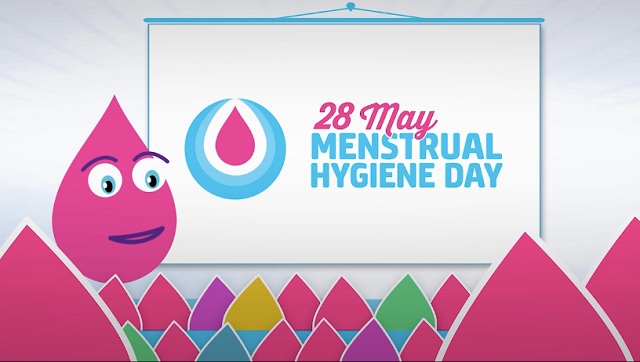The Ghana Education Service (GES) has highlighted the need to intensify education “targeting girls, boy and the parents” on menstrual hygiene.
GES made a case for this move as the country commemorates Menstrual Hygiene Day on May 28, 2020.
The day is to “celebrate women and girls, to discuss menstruation, and to advocate for more favourable conditions for the many women and girls in Ghana without access to basic information on menstrual hygiene management, dignified toilets, safe water and safe sanitary hygiene materials.”
The 2020 edition is under the theme, "It's Time for Action’.
In a press release signed by the Deputy Director-General Anthony Boateng, the Service emphasised the need to look at the menstrual hygiene in the context of the ensuing Covid-19 poandemic.
It explained that the closure of schools over the need to contain the novel coronavirus may lead to “fewer girls and boys having basic information in relation to menstrual hygiene management.”
The GES among others things called for “provision of toilet facilities which are gender friendly with changing rooms, easy accessibility to menstrual hygiene products, even during the COVID-19 pandemic and demystification of myths and taboos connected with menstruation.”
Read full statement below
2020 Menstrual Hygiene Day Commemoration
Today is Menstrual Hygiene Day (28 May). It is a day to celebrate women and girls, to discuss menstruation, and to advocate for more favourable conditions for the many women and girls in Ghana without access to basic information on menstrual hygiene management, dignified toilets, safe water and safe sanitary hygiene materials.
The theme for this year is "It's Time for Action’.
This year’s celebration takes place in the context of the coronavirus (COVID-19) pandemic – a health crisis which has thrown a spotlight on the importance of adequate water, sanitation and hygiene.
According to the Multiple Indicator Cluster Survey 2017/2018, (MICS 2017/18) in Ghana, fewer than one in two (48.5 %) of households have handwashing facilities with water and soap and one in three women do not have access to a toilet during menstruation. Many did not have access to sanitary products and managed their menses using unhygienic unhygienic items like newspaper or leaves.
The economic and other social factors of COVID-19, including potential loss or reduction in family income, coupled with school closures and increase in cost of commodities may result in many adolescent girls and women having less ability to afford or access relevant sanitary materials.
In addition, the closure of schools may lead to fewer girls and boys having basic information in relation to menstrual hygiene management.
There is the need to continue advocacy on the following:
- Continuous education targeting girls, boy and the parents
- Provision of toilet facilities which are gender friendly with changing rooms
- Easy accessibility to menstrual hygiene products, even during the COVID-19 pandemic
- Demystification of myths and taboos connected with menstruation.
2020 Menstrual Hygiene Event
This year’s Menstrual Hygiene Day is being commemorated via social media, radio and television broadcasts.
Activities include the following:
- Webinar Seminar for the commemoration on the 28th May, 2020 from 9:30am-11:00 am broadcast online. The 90-minute event will include a keynote address delivered by the Hon. Minister of Education. Speakers and panelists from the Ghana Health Service, Ministry of Sanitation and Water Resources, Ghana Education Service, UNICEF, CONIWAS and other Development Partners.
- Short films of well-known personalities from all sectors - including government ministers, religious and traditional leaders, adolescents and broadcasters - celebrating Menstrual Hygiene Day
- Media interviews with representatives of the National Technical Committee on Menstrual Hygiene Management.
- Social media influencer endorsement
- Discussions on MHM on GTV Adult education programme as post MH Day activity
A post activity will be conducted by SHEP Coordinators at the Regional and District level
We are grateful to the National Technical Committee on MHM as well as those who coordinated the programme from Ministry of Education / Ghana Education Service, Ministry of Gender, Children and Social Protection, the Ministry of Health / Ghana Health Service, the Ministry of Sanitation and Water Resources. Other partners include UNICEF, Greater Accra Metropolitan/Municipal Area (GAMA) Sanitation and Water Project, World Bank, World Vision Ghana, WaterAid Ghana, Days for Girls, Global Communities and USAID and Coalition of NGOs in Water and Sanitation (CONIWAS).
We urge them to continue their support.
ANTHONY BOATENG
DEPUTY DIRECTOR GENERAL (MS)
FOR: DIRECTOR-GENERAL
Latest Stories
-
63 Nsawam Prison inmates earn degrees from UCC
15 minutes -
KNUST student allegedly killed by lover to be buried this weekend
36 minutes -
Finance Minister commits to timely release of funds for School Feeding caterers
36 minutes -
I wanted to be a rapper – Yvonne Nelson
39 minutes -
Address issues affecting teachers by April 30 – GNAT tells govt
42 minutes -
Lands Minister calls on institutions to play their roles effectively in galamsey fight
45 minutes -
More funds as government uncaps DACF, allocates money for Assemblymembers
46 minutes -
I can’t afford to disappoint President Mahama – Prof Kobby Mensah
48 minutes -
Absa Bank launches She Business to offer GH¢2m in collateral-free loans to women entrepreneurs
53 minutes -
Akorfala: Celestine Donkor’s latest song features Diana Hamilton
1 hour -
Deloitte Africa member firms unite to celebrate ‘Earth Month 2025’
2 hours -
Newly recruited teachers from Colleges of Education demand payment of 7 months ‘ salary arrears
2 hours -
92.3% of businesses in Ghana remain informal – GSS
2 hours -
“We are not oppressed in our homes” – Hajia Zaliatu Kasim dispels misconception about Muslim women
2 hours -
ASEPA petitions President Mahama for removal of Auditor General from office
2 hours

